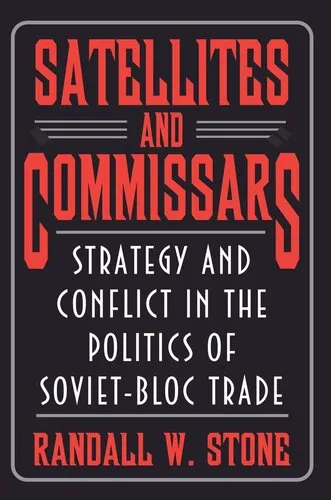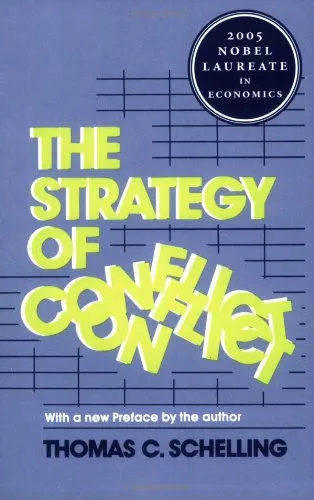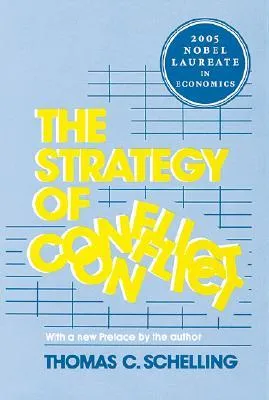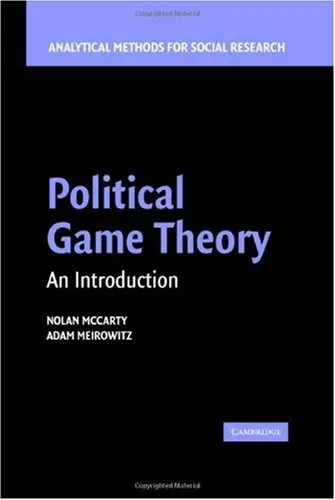Satellites and Commissars: Strategy and Conflict in the Politics of Soviet-Bloc Trade
4.8
Reviews from our users

You Can Ask your questions from this book's AI after Login
Each download or ask from book AI costs 2 points. To earn more free points, please visit the Points Guide Page and complete some valuable actions.Related Refrences:
Introduction to 'Satellites and Commissars: Strategy and Conflict in the Politics of Soviet-Bloc Trade'
Welcome to an exploration of the intricate world of Soviet-bloc trade during the Cold War era. 'Satellites and Commissars: Strategy and Conflict in the Politics of Soviet-Bloc Trade' delves into the complex dynamics and strategic maneuvers within the Eastern Bloc as the Soviet Union and its satellite states navigated international trade under a socialist framework. This book provides a comprehensive analysis of the economic and political strategies employed, the inherent conflicts within the system, and the broader implications on the global stage.
Detailed Summary of the Book
In 'Satellites and Commissars', Randall W. Stone offers a meticulous study of the trade policies and practices of the Soviet Union and its satellite countries during the Cold War. The book unravels the intricacies of the Council for Mutual Economic Assistance (CMEA), highlighting how the Soviet Union exercised control and influence over its allies. Stone examines the political economy of Soviet-bloc trade, revealing the ways in which the central planning and socialist principles clashed with national interests and economic realities.
Stone's research offers a deep dive into the negotiations, agreements, and often conflicting interests that defined intra-bloc trade. By analyzing trade data, political documents, and firsthand accounts, he uncovers the underlying strategic considerations that shaped the economic relationships among the Eastern European countries and the Soviet Union. The book also addresses the concept of 'Commissars' — the political operatives who represented the Communist Party's interests in trade negotiations, often prioritizing ideological goals over economic efficiency.
Key Takeaways
- The centralized control of the Soviet Union over its satellite states' economies often led to inefficiencies and conflicts.
- Trade within the Soviet Bloc was primarily driven by political and ideological considerations rather than economic efficiency.
- The complexities of CMEA highlighted the difficulties of integrating diverse national interests under a single economic system.
- Negotiations within the bloc revealed a constant tension between the notion of socialist cooperation and the reality of national self-interest.
Famous Quotes from the Book
"The mechanics of Soviet-bloc trade were less about the free exchange of goods and more about a carefully orchestrated dance of power and politics."
"In the world of the Commissars, economic logic takes a backseat to political imperatives."
Why This Book Matters
Understanding the intricacies of trade within the Soviet Bloc provides valuable insights into the political economy of central planning and its limitations. 'Satellites and Commissars' is crucial for scholars and students of Cold War history, economics, and international relations. It sheds light on the inherent challenges of maintaining ideological purity while engaging in international trade, and how these dilemmas influenced not just the Soviet Union, but the entire global political landscape.
The book's in-depth analysis makes it a significant contribution to literature on Soviet history and provides contemporary policymakers and economists with lessons on the complexities of managing multilateral trade agreements and political alliances.
Free Direct Download
You Can Download this book after Login
Accessing books through legal platforms and public libraries not only supports the rights of authors and publishers but also contributes to the sustainability of reading culture. Before downloading, please take a moment to consider these options.
Find this book on other platforms:
WorldCat helps you find books in libraries worldwide.
See ratings, reviews, and discussions on Goodreads.
Find and buy rare or used books on AbeBooks.
1436
بازدید4.8
امتیاز0
نظر98%
رضایتReviews:
4.8
Based on 0 users review
Questions & Answers
Ask questions about this book or help others by answering
No questions yet. Be the first to ask!













